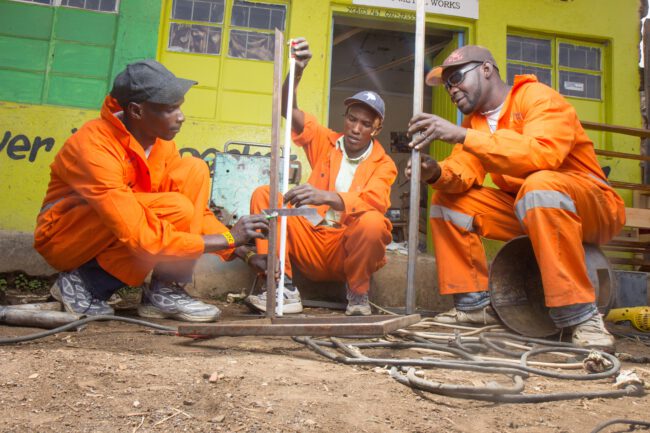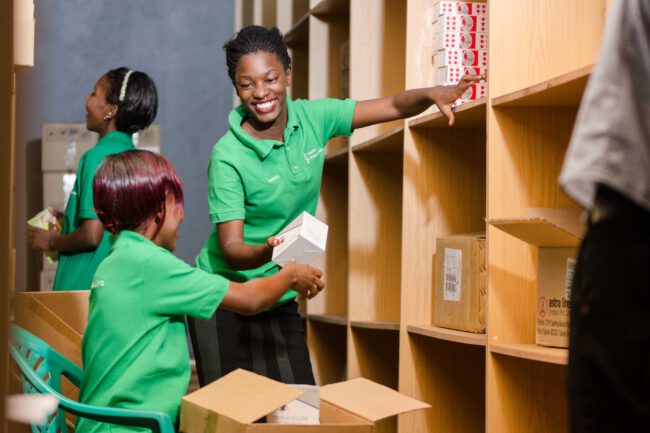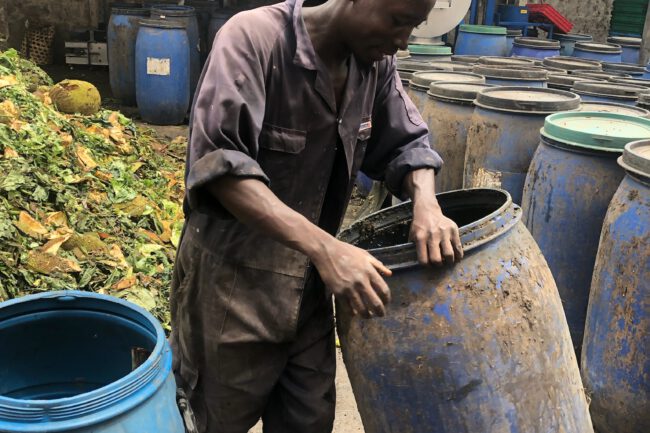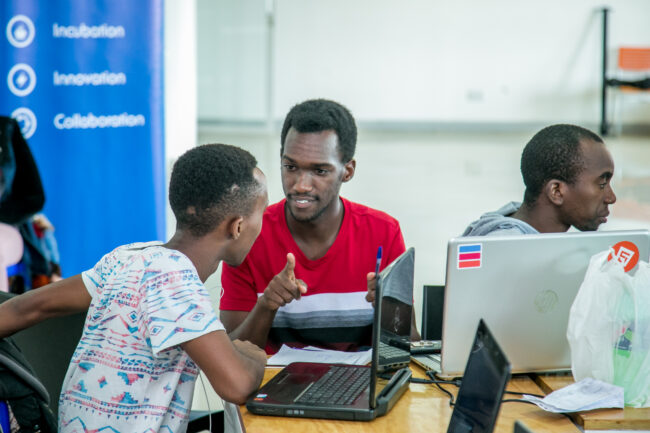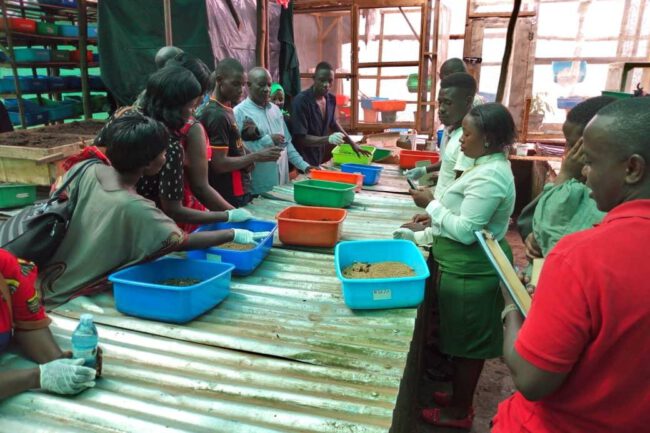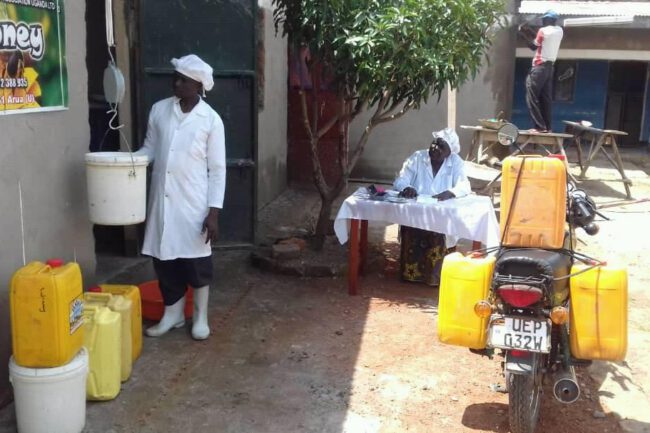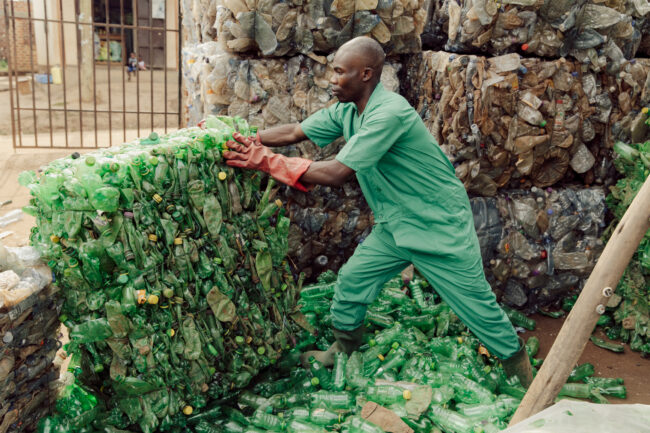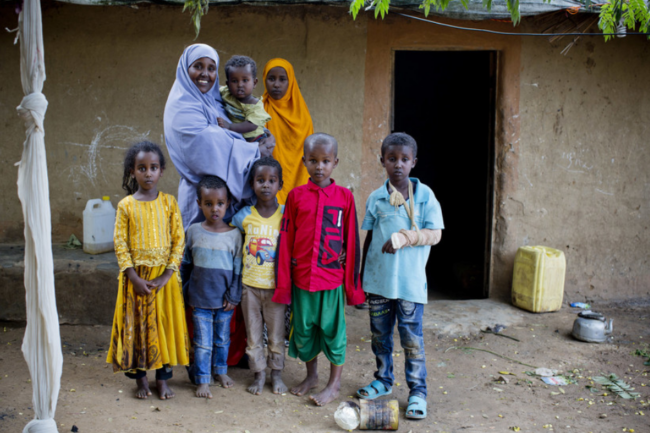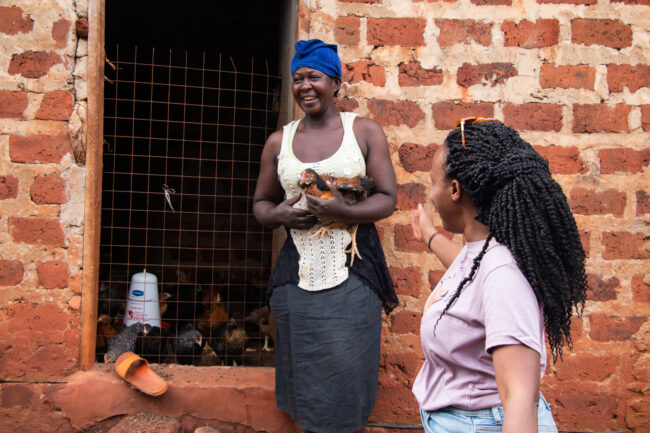Country Portfolio Uganda
CFYE has launched two Calls for Solutions in Uganda. CFYE aimed to co-invest in innovative private sector-led initiatives that provide businesses with access to suitably skilled personnel and realize employment for youth in last mile solutions, circular economy models, with an extended focus on inclusivity (gender, disability, refugees), and informal sector (mostly self-employed). Andrew Magunda is our Country Lead for Uganda.
Uganda’s Job Market & Youth
Uganda’s job creation challenge is in many ways typical of the Sub-Saharan African region. It has one of the youngest populations globally, and the working-age population is projected to double by 2040. While over a million young people are entering the job market each year, the unemployment rate remains high, significantly impacting young women. The national household survey (2019/2020) demonstrated that 13% of Ugandan youth (18-35) are unemployed. The youth, however, have far-reaching (entrepreneurial) ambitions and aspire to find employment that pays an amount proportionate to the work done, allows for personal and professional development, and provides security.
The CFYE Youth Action Research found that a significant proportion of the youth aspires to be employed within IT, communication, leadership, agriculture, healthcare, and advocacy roles.
Uganda’s economy is dominated by very small firms, few of which are growing. Most of these small businesses do not generate much employment besides and have a poor survival rate. There are many structural barriers to creating an enabling environment to start and grow a business. Moreover, there is a need to ensure that the workforce has the right skills to increase their employability.
To help the private sector in Uganda create a pathway to decent youth employment that is in line with the youth’s ambitions, we launched our first Uganda Call in 2019. Witnessing the private sector’s enthusiasm and the significant number of meaningful youth employment initiatives, we opened a second Call for Solutions in 2021.
Our Impact
Our Portfolio in Uganda
Considering the Ugandan youth’s aspirations, the business climate, and the needs of supply and demand, we developed a portfolio that mainly focuses on the following sectors: high potential industries, such as agri-processing, manufacturing, and ICT; innovative business models delivering last-mile solutions; and initiatives contributing to a circular economy. We plan to achieve more than 32,000 decent jobs for Ugandan youth. More than 15,000 of these projected jobs will be new jobs created by our partners. The rest will be accomplished through either matching youth to relevant jobs or improving the conditions of existing jobs to achieve decency in work.
Women have a significant focus in the portfolio, as more than 62% of the jobs will be occupied by young Ugandan women – far surpassing CFYE’s 50% ambition.
Our current portfolio in Uganda is very diverse. We are very impressed to see how our partners tackle complex issues such as innovating energy, making healthcare more accessible, engaging youth with different abilities in the workforce, helping informal sector youth workers with better job/work innovations that improve their job experience and outcomes,, and much more. We have a mix of waged employment and (dependent) self-employment in our current portfolio, all serving one clear goal: helping youth find decent employment.
So far, as our first CFYE call, this portfolio has already successfully graduated/closed out one implementing Partner (Balloon Ventures), which met all of its job targets. By end of March 2024, the second batch of implementing partners from this call (Light for the World, Marula Proteen, and woord en daad) will also close-out.
With the support of CFYE, we will scale our work across Eastern Uganda, and open source our approach to catalyse a new market supporting SGBs. By September 2023, we will create 351 new jobs and improve/sustain 632 jobs (total 983). 95% of these jobs (933) will be for youth.
Without CFYE funding HE is able to continue growing to a network of 9600 CHEs. In order to cover the entire country, franchising the concept is key. Only with replicators, it is possible to improve the lives of 12.000 health workers in a cost-effective, and efficient way.
With the support of CFYE funding we can accelerate the expansion of our waste-to-value business model while empowering youth. We can offer decent and sustainable employment through a variety of areas including: coffee waste processing, biochar production and the cultivation of larvae.
CFYE funding enables scaling and ensuring that greater numbers of youth will have decent employment, with a focus on young women and youth with disabilities. For this consortium the most important added value is investing in training, coaching and mentoring.
The consortium of international and national, public and private partners worked together on the improvement of the honey value chain in the past years. Building on 18 years’ experience, this project tackles everything that holds (female) youth back from generating income.
With CFYE support, we as a consortium, OI, Cohere, OBUL & PHB, will address financial and societal challenges faced by young refugees in Uganda, who are impeded from accessing sustainable employment opportunities.
